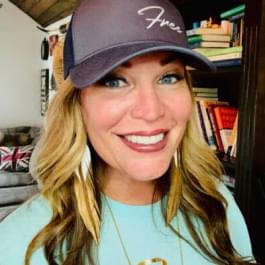
What Is Your Friendship Attachment Style? Ft. Dr. Marisa Franco
Hey friends, we are back with another episode in our For the Love of Community & Friendships, and we happen to have a true friend of the show returning to lay down some expertise about what it means to make and keep friends. We’re delighted to have Dr. Marisa Franco, (who also partnered with Jen to create a MeCourse on Friendship) who delves into the fascinating world of friendship attachment styles. Dr. Franco shares her extensive knowledge and insights on how our attachment styles, often formed during our early years, can significantly influence the type of friendships we form as adults. She discusses the three main types of attachment styles—secure, avoidant, and anxious—and explains how understanding our own style can help us navigate our friendships more effectively. Jen and Marisa touch on: How the three main types of attachment styles can change over time as we typically become more secure as we mature How, when we’re younger, we tend to have more friends (and friends who are very similar to us) as we look to expand our identity, and when we become more solid in our identity, we’re more open to be friends with people who are different from us Why friendship doesn’t just typically “happen,”--it takes effort, and some ways you can put yourself out there to make new friends, and how to do the work to keep the friends you already have How to approach conflict in friendship where we kindly share our needs with a spirit of reconciliation over an attitude of defensiveness * * * Thank you to our sponsors! Chime | Visit chime.com/forthelove to learn how you can benefit from using Chime! FOCL | Visit https://focl.com/ and use code FORTHELOVE at checkout for 20% off of your purchase Jen Hatmaker BookClub | Visit jenhatmakerbookclub.com and use code READ at checkout $5 off your purchase! Thought-Provoking Quotes: “If you don't understand your attachment style, you think that the world is just mean and cruel and people are gonna reject you or people are going to betray you. If you're more avoidant and you don't have any power, you don't have any agency because all the issues are out in the world.” - Dr. Marisa Franco “I think if we can understand our attachment styles, we have more agency, we have more control, we can shift our behaviors and we can find the relationships that we really want.” - Dr. Marisa Franco “People are a lot more likely to be friends with people that are similar to them. It's called homophily. The value of these similar relationships is they do make us feel very safe.” - Dr. Marisa Franco “We see in the research that people who see friendship as happening without effort are more likely to be lonely five years later. People that see it as requiring effort are less likely to be lonely five years later.” - Dr. Marisa Franco “What we see in the research is that when people try to reconnect with someone, that person is happier to receive that reconnection than we predict.” - Dr. Marisa Franco “In a healthy conflict, I think of; what does this conflict look like without blame? What if I go into here not trying to blame this person, not trying to even assume that they were trying to intentionally hurt me. So then, how do I navigate it with that being what's going on in my head?” - Dr. Marisa Franco Resources Mentioned in This Episode: Platonic How The Science of Attachment Can Help You Make and Keep Friends a book by Dr. Marisa Franco Guest’s Links: Dr. Franco’s Website Dr. Franco’s Instagram Dr. Franco’s Facebook Dr. Franco’s Twitter Dr. Franco’s Psychology Today Connect with Jen! Jen’s website Jen’s InstagramJen’s Twitter Jen’s FacebookJen’s YouTube To learn more about listener data and our privacy practices visit: https://www.audacyinc.com/privacy-policy Learn more about your ad choices. Visit https://podcastchoices.com/adchoices
From "For The Love With Jen Hatmaker Podcast"




Comments
Add comment Feedback